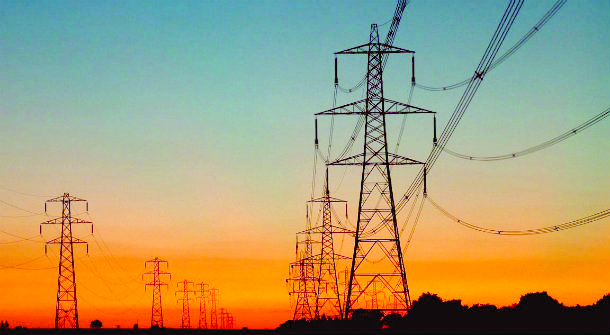
Electricity beyond the grid - accelerating access to sustainable power
Off-grid electrification takes two main forms – standalone home energy systems and mini-grids. Although mini-grids have been used for electrifying rural villages for at least two decades, it is standalone systems that are now far more common.
We take a look at the part each has to play, who is doing what, the factors that are determining success or failure and the barriers that need to be overcome.
Standalone Electrification Solutions
Advances in technologies such as solar PV and LED lighting and falling prices have led to a surge in standalone electrification solutions in recent years. The International Renewable Energy Agency reports that there are more than six million pico and solar home systems (SHS) in operation worldwide, of which three million are installed in Bangladesh1.
In some locations, growth has been led by public initiatives such as the Rural Electrification and Renewable Energy Project in Bangladesh. In other places, growth has been more commercially-driven, funded either by 100 per cent upfront cash payment by customers or through pay-as-you-go (PAYG) schemes or long-term leases. The size of the systems varies, from basic pico lighting systems to solar home system installations that can power devices such as phone charging systems, televisions, fans and fridges. They cover tiers 1-3 of the UN Sustainable Energy for All (UN SE4ALL) classification.
Part of the success of standalone home systems has been due to the strongly customer-centric focus of PAYG SHS companies. Their business model, in many respects, is not about selling electricity, which would be the case with a traditional utility or, indeed, a mini-grid operator. Instead, the focus is on the needs of the customer-lighting, access to information and communications, solar TV etc. - and pricing is pitched accordingly.
The spread of customer-financing business models such as PAYG for solar home systems in Africa has particularly caught the imagination. Companies such as M-Kopa and Mobisol have been in the forefront, using payment systems such as M-PESA, Airtel and MTN mobile money. This combination of solar and mobile technology is bringing affordable solar technologies to off-grid villages. Mobisol reports that it has installed over 30,000 solar home systems for households in Tanzania and Rwanda since its creation in 2010. Customers pay off the monthly instalments using their mobile phones. After one to three years, they fully own their personal electricity source. Nairobi-based M-Kopa reported in January 2016 that it had reached the milestone of connecting over 300,000 homes to solar power.
Aside indigenous players such as Kenya’s M-Kopa and Tanzania’s Helvetic Solar, the market in Africa includes international companies such as Mobisol and solar panel manufacturers such as Canadian Solar, First Solar and Trina Solar.
There are also niche NGO players such as Solar Aid, who describe their role as helping to “kickstart markets for solar lighting across the continent.” There has been a dramatic shift towards PAYG in recent years. A Bloomberg analysis found that PAYG companies attracted twice as much investment as cash-sales companies in half the time.
The same study observed that the majority of PAYG firms offer home systems designed to power more than just a few lights and a phone charger. Companies such as BBOX and SolarNow, for example, offer 250W systems, capable of powering a radio and a phone, twelve lights, a large TV, and a fridge.
A key factor behind the growth of PAYG home electrification systems has been business models that are designed to respond to the needs of rural households and their ability to pay. Pricing propositions take account of existing energy expenditure on items such as kerosene.
Further, the development of flexible credit facilities tailored to what customers can afford and their income patterns enables customers to scale up their solar solutions, products and services.
Standalone home solar systems have also been able to develop in a relatively unregulated market context. Especially due to this unregulated market space, barriers to entering it are reduced and the business case for a profitable business is easier to establish.
In some respects, the energy landscape that is developing in parts of Africa, based on mobile connectivity and standalone electrification, has a level of customer and data interactivity that rivals the most advanced smart grid systems in developed markets. The mobile platform is able to link customers, equipment, support and payment in ways that benefit both the customer and the provider. Most systems have the ability to remotely turn off the equipment if monthly payments are not made and to switch them back on again once payments resume. Some systems allow superior customer service based on real-time data. For example, proactive alerts can be issued to customer service agents instantly to track problems before they evolve.
PAYG companies have invested in a strong brand and servicing, given the issues of trust and awareness in the market today.
The emphasis has been on a clear customer promise and backup strategy. Affordability, simplicity of use, reliability and convenience are at the heart of both the product and payment arrangements. Individual company strategies to promote trust are reinforced by the Lighting Africa and Lighting Global quality assurance initiative for solar pico products which has been running since 2009.
This was extended in 2015 to cover ‘plug and play’ kits up to 100W. The scheme’s extension comes at a time when concern about the risks to the industry from generic products and counterfeiting is increasing.
The writer is the Country Senior Partner of PwC Ghana. He has over 20 years’ experience in accounting and finance, including due diligence and business reviews, business valuations, investment appraisal and forensic investigations.
email-vish.ashiagbor@gh.pwc.com/yaw.appiah-lartey@gh.pwc.com